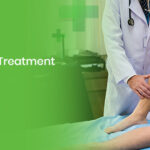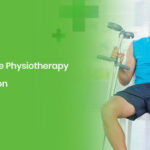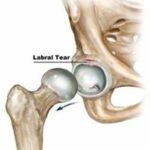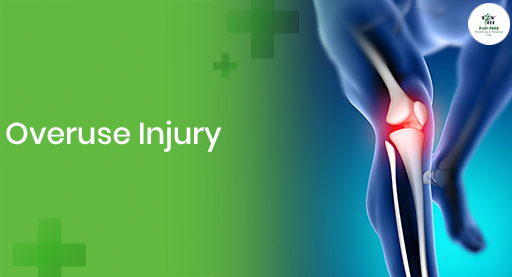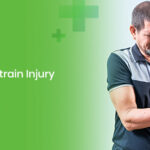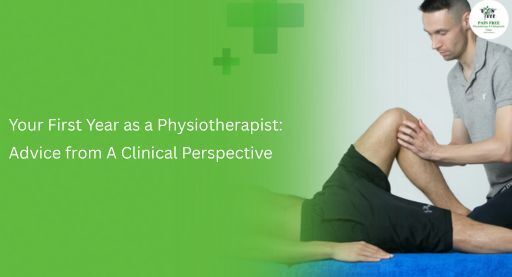What Causes Overuse Injuries and How to Recover Safely?
Overuse injuries happen when you repeatedly use the same muscles or joints without giving them enough time to recover. Instead of being caused by a single accident, they develop slowly over time due to repetitive stress, like swinging a tennis racket, running long distances, or typing continuously. These small, repeated movements cause tiny tears in muscles and tendons that eventually lead to pain, inflammation, and limited mobility. Common examples include tennis elbow, runner’s knee, and shin splints. Understanding the early signs of overuse injuries and learning how to prevent them through proper rest, stretching, and technique can help you stay active and pain-free.
Overuse Injury can affect any musculoskeletal structure like-
Tendons: Tennis elbow, supraspinatus tendonitis, Achilles tendonitis, etc;
Bursa: Suprapatellar bursitis, subarachnoid bursitis, etc;
Periosteum: shin splints;
Bone: stress fractures;
Signs of Overuse Injury
- Redness;
- Swelling may or may not present;
- Local temperature is raised;
- Tenderness/ pain on touch;
- Loss of function or difficulty in performing activity effectively.
These signs may be unnoticeable in the beginning stage, but, often the first sign is stiffness/ soreness especially in the morning which may disappear after warm-up. Repetition of similar activity may continue to damage the tissue and the pain may now present through and post warm-up and may even get worse after the activity is finished.
So we may conclude the following four stages of overuse injury:
1. Pain that fades away after warming up.;
2. Discomfort that may disappear during warm-up but reappears at the end of activity.;
3. Pain that gets worse during the activity.;
4. Pain or discomfort all the time.
If physiotherapy is started at Stage 1, the patient can continue acting as long as the injury does not worsen.
If the patient presents at Stage 2, the patient may continue activity at a modified pain-free level while being treated. Treatment must continue until completely healed.
At Stage 3, all physical activity that produces pain must be immediately stopped. Only after completely being symptom-free and with physiotherapy supervision one can be allowed to return to activity.
If the injury progresses to Stage 4, a similar procedure should be followed as Stage 3.
Causes of Overuse Injury
- Inadequate muscle strength and endurance;
- Lack of core stability;
- Muscle imbalance;
- Biomechanical faults or malalignment like flat feet, mal tracking of patella, etc;
- Training errors, this is most common of all other causes;
- Faulty technique;
- Incorrect equipment.
Prevention Against Overuse Injury
Overuse injuries can be prevented by following certain norms while exercising/ playing or while doing physical strenuous activity. These include-
- Proper warm-up and cool-down before and after all exercise;
- Use of proper equipment (e.g. well supported jogging shoes, adequate size, weight and grip of a racquet to one’s level of play);
- Progress at a rate no faster than 10% per week (distance, speed, weight, etc);
- Practice and concentrate on correct technique;
- Respect pain, which signals that something is wrong. Early identification and treatment allow the continuation of physical activity.
- Identify and correct the cause of pain or discomfort;
- Ensure complete rehabilitation post-injury, e.g. Tendonitis in one shoulder may result in tendonitis in the other shoulder because of overuse of that shoulder.
COMMON OVERUSE INJURIES INCLUDES
- Achilles Tendonitis / rupture
- Bursitis around Knee
- Carpal Tunnel Syndrome
- Chondromalacia Patella
- Muscle Cramps
- de Quervain’s Tenosynovitis
- Degenerative Disc Disease
- DOMS – Delayed Onset Muscle Soreness
- Femoroacetabular Impingement (FAI)
- Fibromyalgia
- Golfers Elbow
- Greater Trochanteric Pain Syndrome;
- Hip Labral Tear;
- ITB (Iliotibial band) Syndrome;
- Metatarsalgia;
- Morton’s Neuroma;
- Muscle strains;
- Olecranon Bursitis or students elbow;
- Osgood Schlatter’s disease;
- Osteitis Pubis;
- Patella Tendonitis (Tendinopathy);
- Plantar Fasciitis;
- Posterior Ankle Impingement;
- Retrocalcaneal Bursitis;
- Rotator Cuff Syndrome;
- RSI – Repetitive Strain Injury;
- Shin Splints;
- Sinding Larsen Johansson Syndrome;
- Spondylolisthesis;
- Stress Fracture;
- Tennis Elbow;
- Trochanteric Bursitis
TREATMENT
The most important steps in managing overuse injury are-
- Removal of causative agents;
- Reduce pain and inflammation;
- Careful return to activities as the symptoms reduces.
Conclusion:
An expert physiotherapist will carefully assess and guide necessary measures to be taken to treat overuse injuries.
If you suspect your injury to be as a result of overuse, get in touch with Dr. Roshan Jha (PT) at PAIN FREE PHYSIOTHERAPY CLINIC and understand your condition better and also the possible treatment to get rid of it.


